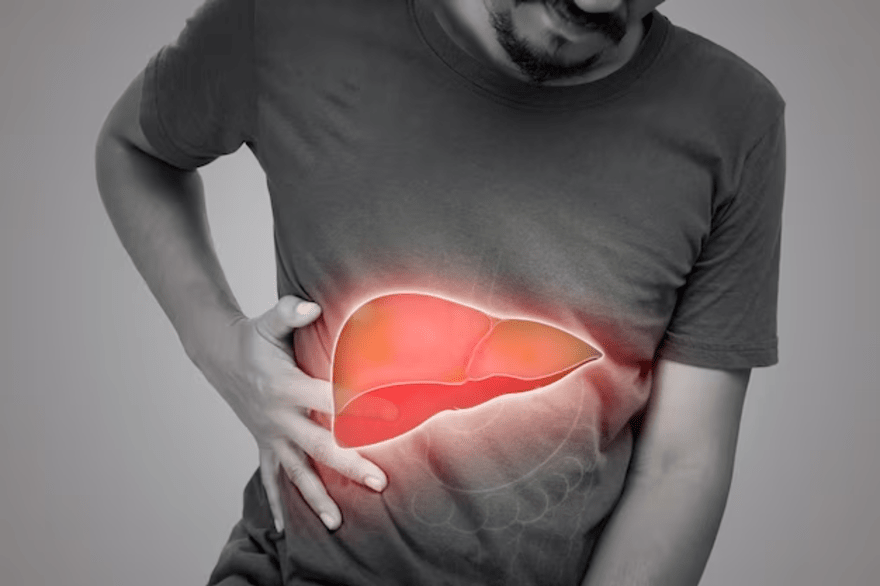Liver Disease Treatment
Liver disease encompasses a range of conditions affecting the liver’s ability to function properly. From hepatitis and cirrhosis to fatty liver disease and liver cancer, the treatment for liver disease depends on its cause, severity, and the patient’s overall health. Here’s an in-depth look at the various treatment options for liver disease.
1. Lifestyle Modifications
a. Diet and Nutrition: A healthy diet is crucial for liver health. Patients are often advised to adopt a balanced diet rich in fruits, vegetables, lean proteins, and whole grains. Reducing salt and sugar intake can help manage conditions like fatty liver disease. In cases of cirrhosis, a low-sodium diet may be recommended to prevent fluid retention.
b. Alcohol Abstinence: For liver conditions exacerbated by alcohol, such as alcoholic hepatitis or cirrhosis, complete abstinence from alcohol is essential. This helps to prevent further liver damage and promotes healing.
c. Weight Management: Obesity can contribute to non-alcoholic fatty liver disease (NAFLD). Weight loss through diet and exercise can improve liver function and reduce fat accumulation in the liver.
2. Medications
a. Antiviral Medications: For viral hepatitis (types B and C), antiviral drugs like tenofovir or entecavir for hepatitis B, and direct-acting antivirals (DAAs) like sofosbuvir or ledipasvir for hepatitis C, are used to reduce viral load and prevent liver damage.
b. Corticosteroids: These are often prescribed for autoimmune hepatitis to reduce inflammation and immune system activity against the liver.
c. Diuretics: In cases of cirrhosis with ascites (fluid buildup in the abdomen), diuretics like spironolactone or furosemide are used to help reduce fluid accumulation.
d. Medications for Liver Cancer: Targeted therapies, immunotherapies, and chemotherapy may be used depending on the stage and type of liver cancer. Drugs like sorafenib or lenvatinib are commonly used in targeted therapy.
3. Procedures and Surgeries
a. Endoscopic Treatments: For conditions like portal hypertension, where increased blood pressure in the portal vein leads to varices (enlarged veins) in the esophagus or stomach, endoscopic procedures such as band ligation or sclerotherapy can be used to manage bleeding or prevent further bleeding.
b. Paracentesis: This procedure involves the removal of excess fluid from the abdomen using a needle. It can provide symptomatic relief for patients with ascites due to cirrhosis.
c. Liver Biopsy: Though not a treatment, liver biopsy is an important diagnostic tool. It helps to assess the extent of liver damage and guide treatment decisions.
d. Liver Transplant: For end-stage liver disease, where the liver is severely damaged and cannot function properly, a liver transplant may be the only option. This involves replacing the diseased liver with a healthy donor liver. Pre-transplant care includes managing the patient’s overall health and ensuring they meet the criteria for a transplant. Post-transplant care involves immunosuppressive medications to prevent rejection of the new liver and regular follow-ups.
4. Management of Complications
a. Hepatic Encephalopathy: This condition, characterized by confusion and altered mental state due to liver dysfunction, is managed with medications like lactulose or rifaximin to reduce ammonia levels in the blood.
b. Portal Hypertension: In addition to endoscopic treatments, medications such as beta-blockers (e.g., propranolol) can help reduce portal pressure and prevent complications like variceal bleeding.
c. Jaundice: This is a common symptom in liver disease, often caused by the buildup of bilirubin in the blood. Treatment focuses on addressing the underlying liver condition causing jaundice.
5. Supportive Care
a. Regular Monitoring: Ongoing monitoring of liver function through blood tests (e.g., liver enzymes, bilirubin levels) is essential to track disease progression and response to treatment.
b. Vaccinations: Patients with liver disease are advised to get vaccinated against hepatitis A and B, as these infections can further compromise liver function.
c. Psychological Support: Chronic liver disease can have a significant emotional impact. Support from mental health professionals, support groups, or counseling can be beneficial for coping with the stress and lifestyle changes associated with the disease.
6. Research and Future Directions
a. Emerging Therapies: Ongoing research into new medications, gene therapies, and regenerative medicine (e.g., stem cell therapy) holds promise for more effective treatments and potential cures for liver diseases.
b. Personalized Medicine: Advances in genomics and pharmacogenomics aim to tailor treatments to individual patients based on their genetic profiles, improving efficacy and minimizing side effects.
Conclusion
The treatment of liver disease is multifaceted, involving a combination of lifestyle changes, medications, procedures, and supportive care tailored to the specific type and stage of the disease. Early diagnosis and a comprehensive treatment approach can significantly improve outcomes and quality of life for patients with liver disease. Collaboration between healthcare providers and patients, along with ongoing research, continues to advance the field and offer hope for better treatments and outcomes in the future.
